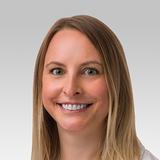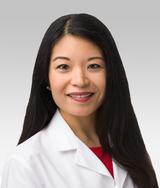Cytopathology Fellowship
Each year, the Department of Pathology offers two ACGME-accredited fellowship positions in cytopathology that emphasize a comprehensive, multidisciplinary approach.
Faculty members involved in the program are committed to fellow training and actively involved in cytopathology at the local, national and international level.
Current Recruitment:
We have filled both fellowship positions for the 2026-2027 academic year.
Both positions for academic year 2027–2028 and 2028-2029 have been filled.


Associate Program Director
Associate Professor, Pathology (Cytopathology), Pathology (Genitourinary Pathology)
Program Faculty
Program Aims
- Provide a comprehensive and diverse didactic and practical cytopathology curriculum, including cytomorphologic diagnostic skills, scientific and medical knowledge, technical skills and proficiency, and administrative and laboratory management experience.
- Teach fellows to effectively incorporate ancillary studies, such as immunohistochemistry, flow cytometry, molecular pathology, and microbiology, to formulate integrated final cytopathologic diagnoses.
- Promote scholarly engagement by encouraging fellows to participate in research initiatives, submit abstracts to national meetings, and write manuscripts for publication in peer-reviewed journals.
- Develop teaching proficiency, presentation skills, and interdisciplinary communication through active participation in interdepartmental conferences.
Education and Research
The program offers comprehensive training in the diagnostic and prognostic applications of cytopathology across a wide spectrum of specimen types. These include gynecologic and non-gynecologic samples, as well as fine-needle aspirates (FNAs) and core biopsies from both superficial masses and deep-seated organs.
The program is anchored at Northwestern Memorial Hospital, where the Division of Cytopathology’s annual volume is approximately 40,000 specimens—including 26,000 gynecologic, 14,000 non-gynecologic specimens, and 4,000 FNAs/core biopsies.
Faculty and fellows are actively involved in the performance of superficial FNAs, as well as on-site evaluation and triage of specimens obtained through interventional radiology, bronchoscopy, and interventional gastroenterology. Additionally, fellows participate in a dedicated weekly ENT clinic, where they perform ultrasound-guided FNAs under supervision, further enhancing their procedural skills and interdisciplinary collaboration.
Clinical Experience
Each fellow actively participates in the adequacy assessment and triage of over 120 ultrasound-guided head and neck FNA biopsies annually, working in close collaboration with the ENT service. In addition, fellows are involved in approximately 130 FNAs/core biopsies performed in Interventional Radiology, as well as over 50 bronchoscopic procedures each year. The hallmark of the program is its integrated management of core biopsies obtained in Interventional Radiology, which are processed and interpreted within the Cytopathology division. This allows fellows to perform diagnostic workups on core biopsy specimens and directly correlate cytologic and histologic findings. The program is supported by its access to a robust array of ancillary diagnostic modalities, including immunohistochemistry, immunocytochemistry, flow cytometry, molecular pathology, liquid-based and automated (Cytyc ThinPrep Imager) cytology, as well as other emerging technologies. A close working relationship exists with surgical pathology and hematopathology, driven by the substantial volume of core biopsies interpreted within Cytopathology.
Regular teaching conferences are held for residents and fellows, and there is significant involvement in departmental, interdepartmental, and multidisciplinary conferences. They also have access to an extensive, on-site curated teaching slide set that supports independent study and case-based learning. Fellows participate in daily diagnostic service, review of outside consultations, teaching of residents and medical students, quality assurance and improvement initiatives, and translational research.
Requirements & Eligibility
Stipend
Application Process
Two cytopathology fellowships are offered annually. Applications should be submitted between May and August two years prior to the starting date of the fellowship. Virtual interviews for selected candidates will take place between June and October, following the review of applications. Prepare an application package with the following items:
- CV
- Application
- Cover letter containing a one-page summary of your cytopathology interest and background
- Minimum of three letters of recommendation
Send application materials and letters of recommendation to the Education Coordinator at cytopathfellowship@northwestern.edu.
Why Northwestern?
Housestaff training through McGaw Medical Center of Northwestern University provides diverse and challenging clinical experiences and world-class education located in the heart of the beautiful city of Chicago. Learn more on the McGaw website.
Watch Our Videos
McGaw Experience Discover Feinberg Northwestern Medicine Community Partnership Program Learn More About Chicago Get to Know Streeterville